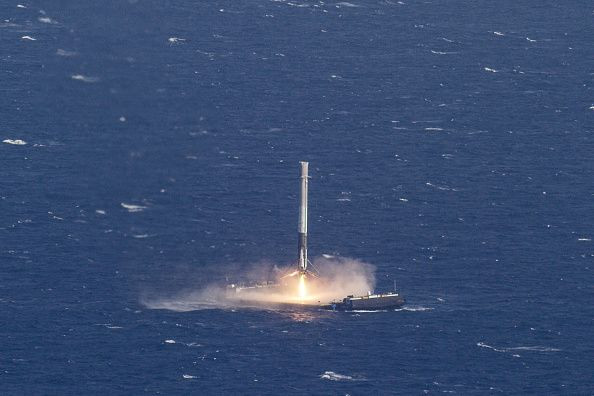Internet For All: Elon Musk’s SpaceX To Launch Satellites Into Orbit On Falcon 9 Rocket

SpaceX wants to launch thousands of satellites in an effort to bring high-speed internet to everyone in the world.
It intends to begin testing satellites this year and then launch a prototype into orbit in early 2018, according to Patricia Cooper, vice president of satellite government affairs for the company founded by Elon Musk. In a testimony to the U.S. Senate’s Committee on Commerce, Science & Technology, during a hearing on May 3, Cooper outlined SpaceX’s game plan. It includes 4,425 satellites in low-Earth orbit, in a range of about 700 to 825 miles into the atmosphere, to provide high-speed, low-latency internet.
That’s not just for people who are already connected, but also for those in remote places in both the United States and around the world — the satellites can reach land where there is no ground infrastructure, often due to costs.
Read: The Amount of Space Debris Orbiting Earth Is Total Garbage
“Millions of Americans outside of limited urban areas lack basic, reliable access,” Cooper said. “Beyond the United States … 4.2 billion people, or 57 percent of the world’s population, are simply ‘offline’ for a wide range of reasons — but predominantly because the necessary connectivity is not present or not affordable.” Meanwhile, internet access is key to economic growth and quality education and health care.
SpaceX plans to start launching the completed satellites starting in 2019, and through 2024, on its Falcon 9 rocket, according to Cooper.
That rocket in the SpaceX fleet was designed to be reused, and has successfully landed vertically.
Split screen shot of Falcon 9 first stage as it returns to Earth and lands at Landing Zone 1. pic.twitter.com/5hlwTOTGKa
— SpaceX (@SpaceX) May 1, 2017
If 4,425 satellites sounds like a lot, that’s because it is. According to Universe Today, there are just more than 1,000 operational satellites in orbit around Earth — half of them in low-Earth orbit, where the SpaceX internet fleet will cruise.
However, low-Earth orbit in general is much more crowded than that. It is full of hundreds of thousands of pieces of debris of various sizes, some smaller than a marble and others bigger than a softball. There are remains of old, busted satellites and used launchers too. Some objects are moving 10 times faster than a bullet — 17,500 mph. Scientists have been working to reduce the amount of space debris orbiting Earth, in part to avoid collisions between objects, which create even more debris.
See also:
© Copyright IBTimes 2024. All rights reserved.





















